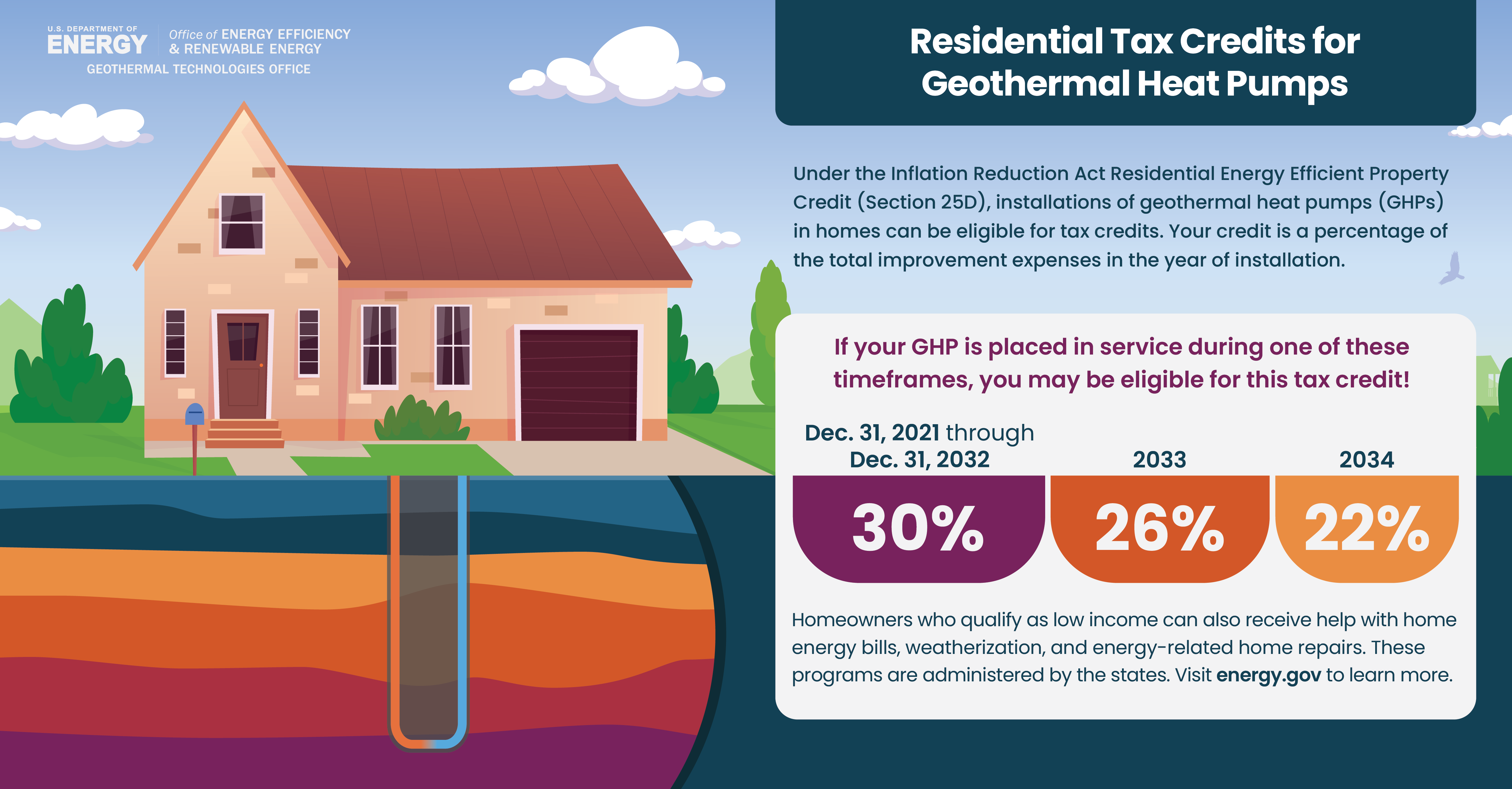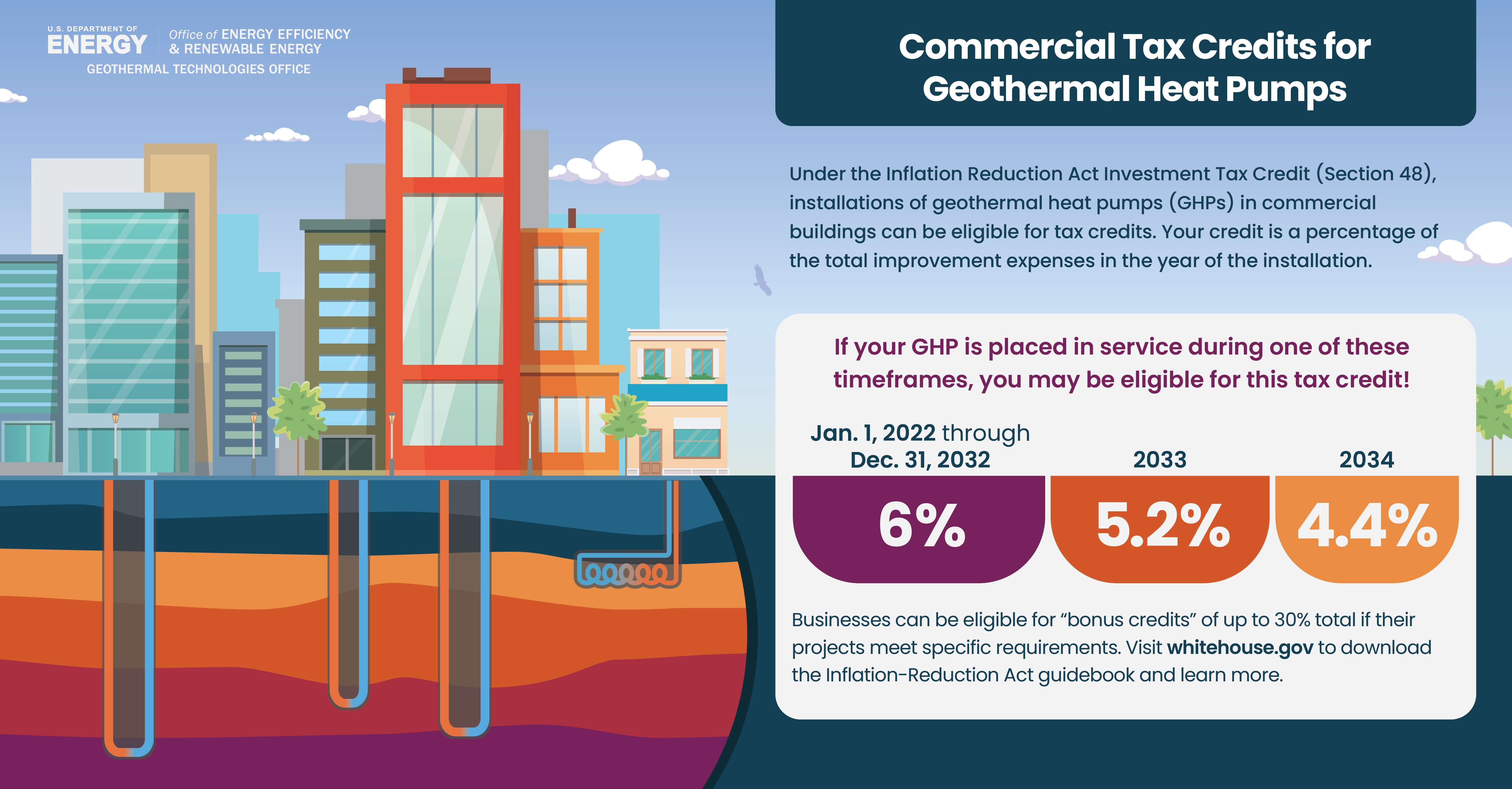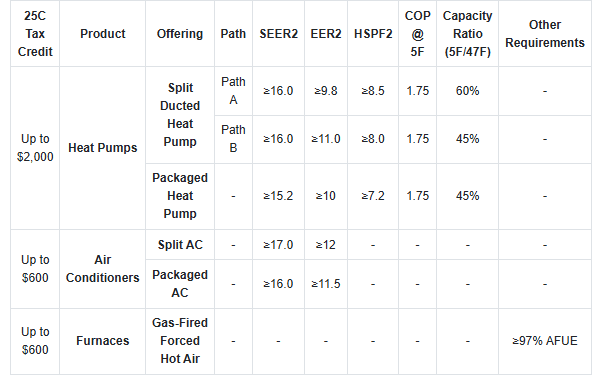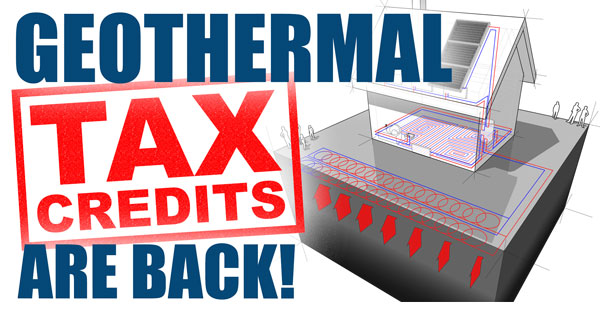What Qualifies For Geothermal Tax Credit

The allure of geothermal energy is growing, driven by a desire for sustainable and cost-effective heating and cooling solutions. A significant incentive fueling this adoption is the Federal Geothermal Tax Credit, officially known as the Residential Clean Energy Credit. Understanding what qualifies for this credit is crucial for homeowners, HVAC professionals, and employers in the industry. This article provides a comprehensive guide to navigating the geothermal tax credit landscape.
Understanding the Federal Geothermal Tax Credit
The Federal Geothermal Tax Credit, part of the Inflation Reduction Act of 2022, offers a substantial incentive for installing qualified geothermal heating and cooling systems. This credit currently stands at 30% of the total cost of the system, with no upper limit. This represents a significant financial benefit for homeowners considering this eco-friendly option. It's important to note that this generous credit is currently scheduled to last through 2032, gradually phasing down in subsequent years. Staying informed about potential legislative changes affecting the credit is crucial.
What Qualifies as a Geothermal Heat Pump System?
Not all ground-source heat pumps qualify for the tax credit. To be eligible, the system must meet specific requirements set by the Environmental Protection Agency (EPA) and the Department of Energy (DOE). Key qualifying factors include:
- Energy Star Certification: The geothermal heat pump system must be certified by Energy Star. This certification ensures the system meets specific energy efficiency standards. Look for the Energy Star label when selecting your system.
- Ground Loop System: Typically, qualifying systems utilize a ground loop, which circulates a fluid through underground pipes to transfer heat to or from the earth. This can be a closed-loop system (horizontal or vertical) or an open-loop system (using well water).
- Water-to-Air or Water-to-Water Heat Pump: The heat pump itself must be designed to transfer heat between water (or a refrigerant solution) and air or water within the building.
- Proper Installation: The system must be installed by a qualified professional to ensure optimal performance and adherence to manufacturer specifications.
It's highly recommended to consult with a NATE-certified (North American Technician Excellence) or IGSHPA-accredited (International Ground Source Heat Pump Association) installer to guarantee the system meets all eligibility requirements. Choosing an experienced and certified technician minimizes the risk of installation errors that could disqualify you from receiving the tax credit.
Eligible Expenses for the Tax Credit
The tax credit covers a wide range of expenses associated with the geothermal heat pump system. These include:
- Equipment Costs: This covers the cost of the geothermal heat pump itself, as well as any necessary components such as pumps, piping, and controls.
- Labor Costs: The costs associated with installing the system, including excavation, drilling, and connecting the system to your home's ductwork or plumbing.
- Installation Costs: This includes expenses for site preparation, permits, and any other fees associated with the installation process.
It is crucial to keep detailed records of all expenses, including receipts and invoices, to support your tax credit claim. Consult with a tax professional to ensure you are claiming all eligible expenses.
The Role of HVAC Professionals in Geothermal Systems
The growing popularity of geothermal energy is creating significant opportunities for HVAC professionals. Expertise in geothermal system design, installation, and maintenance is becoming increasingly valuable.
Career Paths in Geothermal HVAC
Several career paths are available for those interested in working with geothermal systems:
- Geothermal System Installer: These professionals are responsible for installing geothermal heat pump systems, including digging trenches for ground loops, connecting piping, and ensuring proper system operation. A real-world example: Sarah, a recent HVAC graduate, specialized in geothermal systems during her apprenticeship. She now leads installation teams for a company specializing in renewable energy solutions.
- Geothermal System Designer: These professionals design geothermal systems that meet the specific heating and cooling needs of a building. They must have a thorough understanding of building science, thermodynamics, and local geology. Mark, a mechanical engineer with experience in HVAC, pursued IGSHPA accreditation and now designs geothermal systems for commercial buildings.
- Geothermal System Technician: These professionals are responsible for maintaining and repairing geothermal systems, troubleshooting problems, and ensuring optimal system performance. Technicians often need to be proficient in electrical troubleshooting, refrigeration, and plumbing.
Certifications and Training
Several certifications can enhance your career prospects in the geothermal HVAC field:
- NATE Certification: NATE (North American Technician Excellence) certification demonstrates your knowledge and skills in HVAC systems, including geothermal. NATE offers specific certifications for geothermal installers and technicians.
- IGSHPA Accreditation: The IGSHPA (International Ground Source Heat Pump Association) offers accreditation programs for geothermal installers, designers, and drillers. This accreditation is highly regarded in the industry and demonstrates your commitment to best practices.
- EPA 608 Certification: All HVAC technicians who handle refrigerants must be EPA 608 certified. This certification ensures technicians are trained to handle refrigerants safely and responsibly.
In addition to these certifications, consider pursuing continuing education courses and workshops to stay up-to-date on the latest geothermal technologies and best practices. The HVAC industry is constantly evolving, and continuous learning is essential for career advancement.
Job Outlook and Salary Ranges
The job outlook for HVAC professionals is projected to grow significantly in the coming years, driven by factors such as population growth, increasing demand for energy-efficient heating and cooling systems, and the expansion of renewable energy technologies. According to the Bureau of Labor Statistics (BLS), the median annual wage for HVAC mechanics and installers was $51,390 in May 2022. However, experienced geothermal technicians and designers can earn significantly more, with salaries ranging from $60,000 to $80,000 or more per year. The adoption of geothermal systems, propelled by tax credits and growing environmental awareness, should generate even more opportunities for skilled professionals.
Implications for Employers
Employers in the HVAC industry need to be aware of the growing demand for geothermal expertise. Investing in training and certification programs for their employees can help them capitalize on this trend. Employers should also consider offering competitive salaries and benefits to attract and retain skilled geothermal technicians and designers.
Recruiting and Retaining Geothermal Experts
To attract and retain qualified geothermal professionals, employers should consider the following:
- Offer Competitive Salaries and Benefits: Geothermal expertise is in high demand, so employers need to offer competitive compensation packages to attract top talent.
- Provide Training and Development Opportunities: Invest in training programs that allow employees to enhance their skills and knowledge in geothermal technologies.
- Promote a Culture of Innovation and Sustainability: Create a workplace that values innovation and sustainability, which will attract employees who are passionate about renewable energy.
- Partner with Technical Schools and Trade Associations: Establish partnerships with technical schools and trade associations to recruit talented graduates and experienced professionals.
The Future of Geothermal Energy and HVAC
Geothermal energy is poised to play an increasingly important role in the future of heating and cooling. The combination of government incentives, growing environmental awareness, and technological advancements is driving the adoption of geothermal systems. This trend creates exciting opportunities for HVAC professionals and employers who are willing to invest in this promising technology.
For example, consider the growing demand for geothermal systems in regions with harsh winters. Homeowners in these areas are increasingly turning to geothermal to reduce their heating costs and carbon footprint. HVAC companies that specialize in geothermal installations are experiencing rapid growth and are actively seeking qualified technicians and designers.
Final Thoughts
Understanding what qualifies for the geothermal tax credit is essential for homeowners looking to invest in sustainable heating and cooling solutions. This understanding also provides opportunities for HVAC professionals looking to specialize and employers looking to build a team of geothermal experts. By leveraging the tax credit and embracing geothermal technology, homeowners, professionals, and employers can contribute to a cleaner and more sustainable future.
This overview provides a solid foundation for navigating the geothermal tax credit and career landscape. However, consulting with qualified professionals, such as tax advisors and certified HVAC technicians, is always recommended for personalized guidance.










